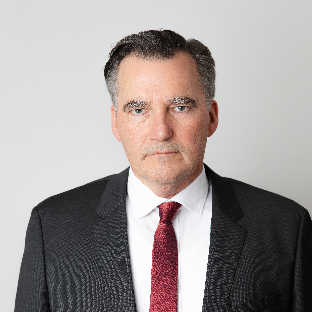Updated results from the pivotal ADAURA Phase III trial showed that AstraZeneca’s Tagrisso (osimertinib) demonstrated a sustained, clinically meaningful improvement in disease-free survival (DFS) compared to placebo in the adjuvant treatment of patients with early-stage (IB, II and IIIA) epidermal growth factor receptor-mutated (EGFRm) non-small cell lung cancer (NSCLC) after complete tumour resection with curative intent.
These late-breaking results will be presented today at the European Society for Medical Oncology (ESMO) Congress 2022 in Paris (abstract #LBA47).
With an additional two years of follow-up from the 2020 readout, allowing all patients the opportunity to complete three years of adjuvant treatment, Tagrisso reduced the risk of disease recurrence or death by 77% (based on a hazard ratio [HR] of 0.23; 95% confidence interval [CI] 0.18-0.30) in the primary analysis population (Stages II-IIIA) and by 73% (HR 0.27; 95% CI 0.21-0.34) in the overall trial population (Stages IB-IIIA). A median DFS of nearly five and a half years (65.8 months) was seen in both the primary and overall populations treated with Tagrisso, compared to 21.9 and 28.1 months in the primary and overall populations, respectively, treated with placebo.
While up to 30% of all patients with NSCLC may be diagnosed early enough to have surgery with curative intent, recurrence is still common in early-stage disease.1,2 Historically, approximately half of patients diagnosed in Stages I-II, and three quarters of patients diagnosed in Stage III, have experienced recurrence within five years of resection.3,4
Results from an additional, prespecified exploratory analysis showed Tagrisso reduced the risk of central nervous system (CNS) disease recurrence by 76% in patients with Stage II-IIIA disease (HR: 0.24; 95% CI 0.14-0.42). At four years, 90% of patients in the Tagrisso arm were disease-free in the brain and spinal cord (95% CI 85-94%) compared to 75% of patients in the placebo arm (95% CI 67-81%). CNS disease recurrence refers to the spread of tumours to the brain or spinal cord, a frequent complication of EGFRm NSCLC associated with an especially poor prognosis.
Masahiro Tsuboi, MD, PhD, Chief and Director, Department of Thoracic Surgery & Oncology, National Cancer Center Hospital East, Japan, and principal investigator in the ADAURA trial, said: “The updated ADAURA results show us that adjuvant osimertinib not only continues to strikingly prolong the time patients with early-stage EGFR-mutated lung cancer are living cancer-free after surgery, but also continues to reduce the risk of tumours recurring in the central nervous system over time. These results reinforce adjuvant osimertinib as a standard-of-care treatment for these early-stage lung cancer patients who previously had no targeted treatment options after surgery, and who otherwise face high rates of disease recurrence.”
Susan Galbraith, Executive Vice President, Oncology R&D, AstraZeneca said: “It is remarkable that just two years ago, patients with early-stage EGFR-mutated lung cancer had no targeted treatment options after surgery. Now, around the world, patients have access to Tagrisso and its added benefit of protecting the brain and spinal cord. We look forward to mature overall survival results for ADAURA in due time, but our research and commitment to early-stage lung cancer patients continue through our broader Tagrisso programme, which is investigating a prolonged duration of post-surgery treatment and the potential role of adjuvant Tagrisso in even earlier stages of disease.”
Summary of efficacy resultsi:








